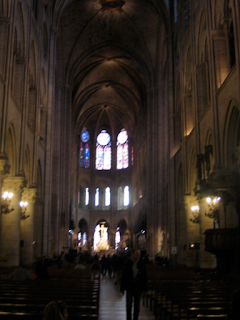Hope born from Loss
Are you as troubled by today’s Gospel as I am? There is a strange inevitability to it. If we know someone is making a poor choice that will lead to something terrible, wouldn’t we do something to stop it? Why, then, as “deeply troubled” as Jesus is in this passage, does he allow Judas to leave? Since Peter knows (but may not believe) that he will deny Jesus three times, is he still free when he does it?
I can empathize with Peter when he denies knowing Jesus: he is terrified. A mob, which has rallied to condemn his master, turns to Peter and asks him: aren’t you his follower? Out of fear, I can understand Peter’s reluctance to stand up. I have a harder time empathizing with Judas. His motives are unclear. I find his choices difficult to follow given that he had spent so much time with Jesus as one of his closest disciples. It is a strange and sad story that Jesus seems to possess full knowledge that he will be betrayed and denied by these two people.
You may wonder why I skipped the first reading. You can hardly find a more hopeful passage from Isaiah’s writings: “I will make you [Israel] a light to the nations, that my salvation may reach to the ends of the earth.” We are given a powerful and profound description of a nation restored, which will be a beacon to all others. And this is followed, in the Gospel, by a harrowing story of how Jesus’ closest disciples, who are there at the beginning of this brilliant restoration, betray and deny him. It is distressing. What a strange place to begin the restoration: upon betrayal, denial, and, finally, a brutal crucifixion.
There are lessons here to take away, I’m sure. But I prefer to slow down and simply let myself experience the paradox of these readings. It mirrors the paradox of what is to come in the next few days of Holy Week: the repetition of the passion, crucifixion, and resurrection of Jesus. These stories of our faith are saturated with hope…and suffering. It is as powerful to reflect on as it is troubling. It gives us fuel for meditation on our faith that dares to hope in troubled times.
I can empathize with Peter when he denies knowing Jesus: he is terrified. A mob, which has rallied to condemn his master, turns to Peter and asks him: aren’t you his follower? Out of fear, I can understand Peter’s reluctance to stand up. I have a harder time empathizing with Judas. His motives are unclear. I find his choices difficult to follow given that he had spent so much time with Jesus as one of his closest disciples. It is a strange and sad story that Jesus seems to possess full knowledge that he will be betrayed and denied by these two people.
You may wonder why I skipped the first reading. You can hardly find a more hopeful passage from Isaiah’s writings: “I will make you [Israel] a light to the nations, that my salvation may reach to the ends of the earth.” We are given a powerful and profound description of a nation restored, which will be a beacon to all others. And this is followed, in the Gospel, by a harrowing story of how Jesus’ closest disciples, who are there at the beginning of this brilliant restoration, betray and deny him. It is distressing. What a strange place to begin the restoration: upon betrayal, denial, and, finally, a brutal crucifixion.
There are lessons here to take away, I’m sure. But I prefer to slow down and simply let myself experience the paradox of these readings. It mirrors the paradox of what is to come in the next few days of Holy Week: the repetition of the passion, crucifixion, and resurrection of Jesus. These stories of our faith are saturated with hope…and suffering. It is as powerful to reflect on as it is troubling. It gives us fuel for meditation on our faith that dares to hope in troubled times.
As I was finishing up this post yesterday, I heard the news of the tragic fire that engulfed Notre Dame Cathedral in Paris. I sat there for a minute recalling breathing in the air alongside other pilgrims in that wide-open space when I visited the cathedral back in 2009. May the sparks of hope generated from the memories pouring out of people on TV and online set the stage for the restoration of this iconic structure. Witnessing this flood of memories certainly helps me more clearly see how hope can be born from terrible loss.
Author: Daniel Dion, Asst. Principal for Student Affairs



Comments
Post a Comment